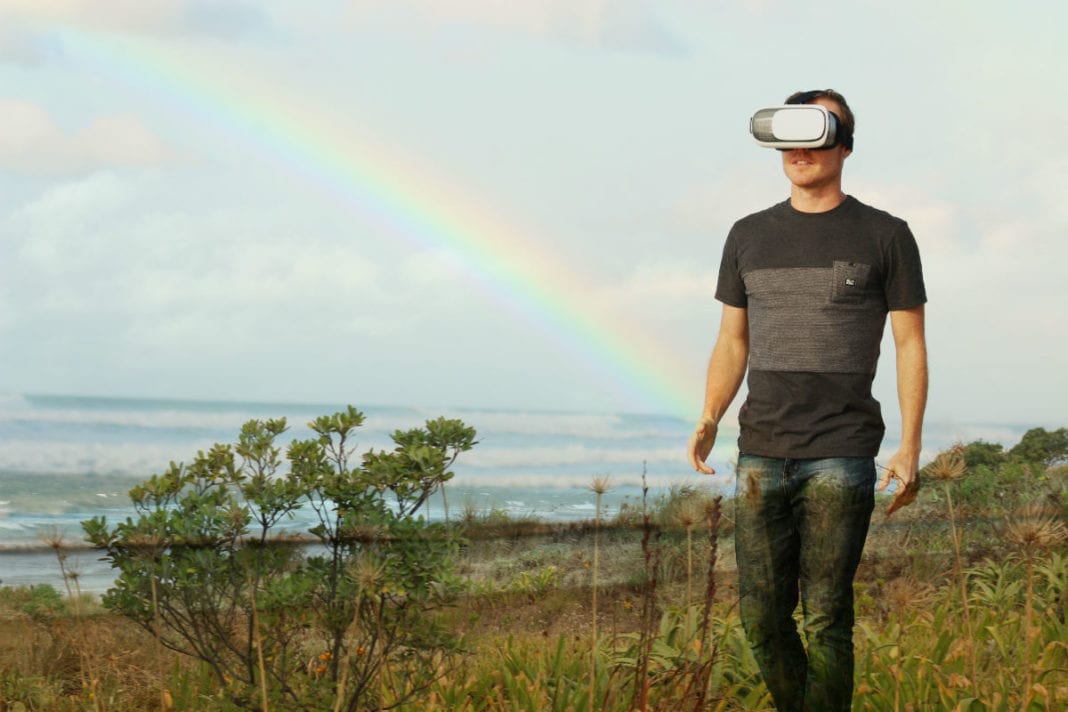You probably hear a lot about big “disrupts” in the world of technology these days. It’s generally used to describe a radical change happening to a company, product or industry. Recently it’d be hard to find a better example of a technology disrupting the marketplace than with virtual reality. It’s changing the way we do things (or at least it’s trying to) in industries ranging from gaming to real estate. As a result it’s gotten a lot of attention. But as much as we’ve been talking about VR for the last 18 months or so, there are some areas that still aren’t being covered as much as they should be.
Here are some of the potential VR disruptions you probably haven’t thought (or read) about just yet.
Arcades & Theme Parks
Most of us are still thinking of VR as a revolution for in-home gaming, and there’s one area where it’s definitely having a massive impact take that form. But if you purchase one of the better headsets and the PC or console it takes to run (something that’s left out of the basic headset price tags), you’re looking at spending at least roughly $1,000. Throw in the fact that a lot of VR games are limited by the available space around you, and in-home VR doesn’t always make a ton of sense. This is why some people are suggesting that as VR gets more sophisticated, you’ll leave your house to experience it. In all likelihood the technology will pave the way for new age arcades and theme parks, where entire areas are set up for wild virtual reality experiences. Almost like a “Holodeck” from Star Trek you can pay to go visit.
Watching Sports
VR has a tons of potential when it comes to changing the ways we watch sports. So far the NBA has led the way, and the early feedback is that the experience is surprisingly good. In the near future, it may come with enough options to be legitimately mind-blowing. We may be able to watch live contests from the virtual “seats” of our choice, or even take in courtside views. Some people have suggested we could even be able to watch the action from the perspective of a player! Imagine what it might be like to get closer than ever to an NFL game, or experience what it’s like to be a quarterback facing down oncoming linebackers. Unlike the gimmick of 3D television virtual reality really has the potential to transform how we watch and experience sports.
Online Casual Gaming
It’s not a huge leap to say that there will be all kinds of casual games looking to take advantage of VR. But some that you might not have initially thought of are poker games and other casino based titles. In fact, there’s already been several casino VR games, and other platforms are trying to recreate the experience through live dealer options. These games represent the cutting edge in online casino technology by allowing players to interact with actual dealers in real-time through a video feed. And it likely won’t be long before it makes the logical leap to VR headsets. But there’s potential that VR will help take it a step further beyond the casino and will allow players to enjoy their favorite games while exploring brand new environments. After all, the point of VR is to provide an experience different from what you can do in real life, which makes atmosphere of something like a traditional poker room almost po
intless. Instead we could see robot dealers, games set in underwater environments, poker in space, and more.
Reading
There aren’t any major reading VR apps in development that we know of just yet, but this is something to look out for as we move away from gaming. We’ve already seen the idea of electronic reading transform the book industry, and Kindle-like experiences could also be on the horizon for VR headsets. We could even see virtual libraries where we could be able to select and read books in a comfortable, studious atmosphere. There’s even a possibility that we could eventually see these world’s brought to life and watch the word literally jump off the page.
Therapy
The potential of virtual reality to alter the health industry has actually been well documented. If nothing else, VR applications for treatment and surgical simulations for doctors and medical students could be invaluable tools. But not everyone is as aware of the potential for VR to help with mental health. From alleviating stress to helping with specific anxieties, there’s a lot of potential in this area, and the health and tech industries are only just scratching the surface. They’re already making great strides in using the technology to help with the treatment of PTSD and we look forward to seeing where else they might be able to use it in the future.
What are you looking forward to with VR on the horizon? Let us know in the comments!
















